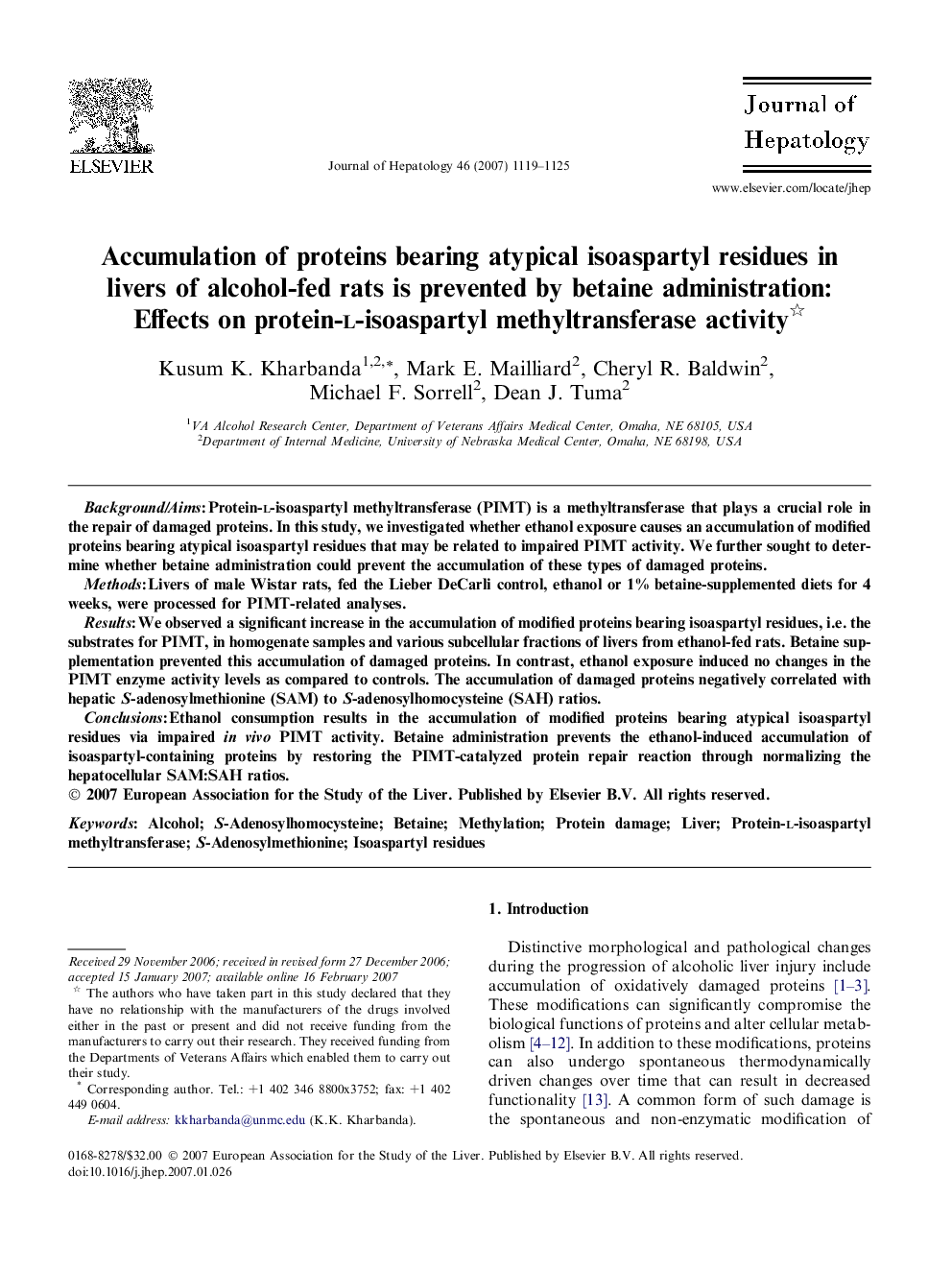| Article ID | Journal | Published Year | Pages | File Type |
|---|---|---|---|---|
| 3314625 | Journal of Hepatology | 2007 | 7 Pages |
Background/AimsProtein-l-isoaspartyl methyltransferase (PIMT) is a methyltransferase that plays a crucial role in the repair of damaged proteins. In this study, we investigated whether ethanol exposure causes an accumulation of modified proteins bearing atypical isoaspartyl residues that may be related to impaired PIMT activity. We further sought to determine whether betaine administration could prevent the accumulation of these types of damaged proteins.MethodsLivers of male Wistar rats, fed the Lieber DeCarli control, ethanol or 1% betaine-supplemented diets for 4 weeks, were processed for PIMT-related analyses.ResultsWe observed a significant increase in the accumulation of modified proteins bearing isoaspartyl residues, i.e. the substrates for PIMT, in homogenate samples and various subcellular fractions of livers from ethanol-fed rats. Betaine supplementation prevented this accumulation of damaged proteins. In contrast, ethanol exposure induced no changes in the PIMT enzyme activity levels as compared to controls. The accumulation of damaged proteins negatively correlated with hepatic S-adenosylmethionine (SAM) to S-adenosylhomocysteine (SAH) ratios.ConclusionsEthanol consumption results in the accumulation of modified proteins bearing atypical isoaspartyl residues via impaired in vivo PIMT activity. Betaine administration prevents the ethanol-induced accumulation of isoaspartyl-containing proteins by restoring the PIMT-catalyzed protein repair reaction through normalizing the hepatocellular SAM:SAH ratios.
